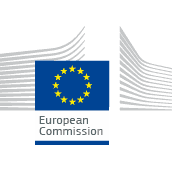
Developing and implementing local integration strategies through multi-stakeholder partnerships
Deadline: Feb 16, 2021
CALL EXPIRED
CALL EXPIRED
Social Innovation
Social Affaires and Inclusion
Disadvantaged People
Asylum, Migration and Integration Fund (AMIF)
Aid to Refugees
Immigration Law
Migrants and Refugees
Background
Integration is a multi-sectoral issue that requires the mobilisation of many stakeholders encompassing different aspects of society. The coordination and timely intervention of these stakeholders is key for an early start of the integration process, as well as for its success. As integration takes place mostly at local level, it is particularly important to coordinate the interventions of different stakeholders through locally focused strategies and plans. The development and implementation of these strategies and of related actions should be based on a comprehensive and integrated approach. It should also encompass an effective consultation and cooperation involving third-country nationals (TCNs) wherever possible, in order to take into account their views and experiences.
In this context, the European Commission has already put in place the Urban Agenda Partnership[1] on the inclusion of migrants and refugees, an innovative multi-level governance platform between cities, national governments and the European Commission, as well as the Urban Academy on Integration, which promotes learning and exchanges between cities, regions and national authorities[2].
Under the 2018 AMIF work programme, the European Commission has also funded eight projects promoting the swift integration of migrants through local and regional networks exchanging knowledge and best practices in all relevant areas of integration[3]. Moreover, other transnational AMIF projects have developed local integration strategies, including in cities, which lacked experience in this area[4].
Objectives
The objective of the topic is to facilitate the development and implementation of multi-stakeholder local integration strategies encompassing different aspects of the integration process. Consequently, proposals should aim at improving socio-economic inclusion and sense of belonging for migrants in local communities. Moreover, as the exchange of good practices and knowledge across the EU serves these particular objectives, proposals that include improving transnational cooperation between relevant stakeholders in the development and implementation of local integration strategies are encouraged.
Actions
Local integration strategies can be developed by local authorities in urban or suburban areas, small towns or rural areas.
The scope of the local integration strategies should be defined on the basis of and taking into account the local needs, context and administrative structure of communities.
Regarding their content, the local integration strategies do not need to cover all aspects relevant to a comprehensive integration policy; however, they should provide for a relevant local integration framework to tackle pertinent integration challenges, such as housing, integration in the labour market, exchanges between newcomers and the local population, sport and culture.
The proposals should include one or more of the following actions (non-exhaustive list):
- Consultation activities for the design of the local integration strategy;
- Trainings, workshops and mutual learning activities;
- Technical assistance and peer review from members of the partnership for setting up and implementing a local integration strategy;
- Transfer of knowledge activities between members of the partnership;
- Awareness raising activities and events;
- Creation of tools or platforms to facilitate the dissemination of know-how and best practices.
Proposals may include other actions beyond those listed above; however, they should clearly demonstrate how actions would serve to achieve the objectives outlined above.
Development of the strategies and implementation of the related actions should be based on a comprehensive approach through effective consultation and cooperation with relevant stakeholders, such as local and regional authorities, national public authorities, economic and social partners, employers, social economy actors and civil society organisations, including migrant associations and local communities for the benefit of their views and experiences.
It is not required that all actions foreseen in the local integration strategy are implemented during the lifetime of the project, however, proposals should implement some of them.
Outcomes
Proposals should focus on contributing to the achievement of the following outcomes:
- Established sustainable framework at local level for discussion on the development and the implementation of a local integration strategy;
- Replicable good practices and a methodology for the development and implementation of a local integration strategy that can inspire other local actors across the EU;
- Improved transnational cooperation between active stakeholders in local integration strategy;
- Improved socio-economic inclusion and a sense of community at a local level for migrants involved in the project;
- Increased exchange of experiences, information and best practices on integration at local level;
- Concrete integration projects and measures implemented at a local level as a result of the exchange of information and experiences between partners of the project.
Further considerations applicable to this topic
- The European Commission would welcome proposals involving applicants from more Member States than the minimum number identified in the eligibility criteria.
- The European Commission would welcome proposals with broad geographical scope engaging applicants from diverse regions across the EU.
- The proposed consortium should directly involve local and regional authorities as applicants or co-applicants.
- The consortium should include relevant key partners such as local and regional authorities, national public authorities, economic and social partners, employers, social economy actors, and civil society organisations, including migrant associations and local communities.
- Proposals should devote specific attention to migrant women and children, especially of those in potentially vulnerable situations, as well as to members of religious or ethnic minorities who could face discrimination or disproportionate obstacles to societal integration
Public link: Only for registered users
 EC - DG - Asylum, Migration and Integration Fund (AMIF)
EC - DG - Asylum, Migration and Integration Fund (AMIF)
Please Log In to See This Section